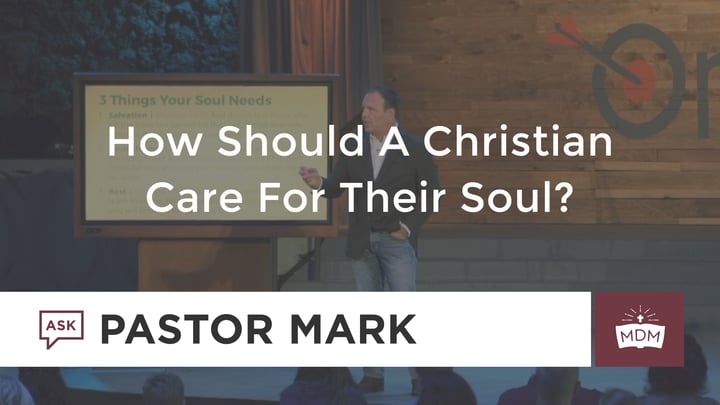In the Western world, we simply stink at grieving, mourning, and losing. We celebrate our wins publicly and grieve our losses privately. No one ever makes a blockbuster movie about the athlete who lost and never recovered or the investor who lost everything and never got it back or the broken heart that never quite mended. Nope. Every story has to have a happy ending, which is a cultural way of lying.
In our own lives, we even use social media to create a fictitious version of our own life that omits all of our faults, flaws, and failures as if we’d already moved to heaven. When’s the last time you got really honest with anyone about how you’re doing, either in person or online. Imagine your social media status being, “Today, I put on a few pounds, am very gassy, got dumped by the person I was dating, cannot pay my bills, found a new zit, and my mom forgot it’s my birthday.”
#lamenting just ain’t trending.
Having faith in God gets us through tough times, but there’s another piece that will allow us to heal up once the storm passes. Lamenting is big in the Bible. In the book of Psalms, the major category of songs are laments. People broken by life and crying out to God grieve and mourn as they move toward healing. Even David the tough guy who could kill soldiers and take down lions knew how to cry a good cry when appropriate. The book of Habakkuk is largely the lament of one man bringing his brokenness to God for healing. You can read his little book in 10–15 minutes and feed your soul for 10–15 years. Here are seven things that help us learn to lament:
Seven Steps to Learning to Lament
When I lament, I allow myself to feel.
When we are hurting, we often numb ourselves to turn off the pain we feel. When we go numb we harm our relationship with God and others as we become emotionally dead. Sometimes this includes self-medicating with your pleasure of choice (drugs, alcohol, food, sex, shopping, entertainment, etc.). Lamenting instead allows us to actually feel all that we are experiencing so that we grieve the losses and experience the loving presence of God and those who love us.
When I lament, I process pain.
By working through hurt, grief, loss, and anger, we get through our healing process. This allows us to not get stuck in the pit of despair, but rather sit in that pit for a while until we are ready to crawl out and move on with life in hope.
When I lament, I grieve my involvement and shed my victim mindset.
When we are hurting, it can be difficult to see any fault or responsibility we have for our suffering. The unfair boss fired us, but we did show up late a lot and not do a great job? The unloving person left our dating relationship, but did we give them some fair reasons to do so? As we lament, we are open to any learning opportunities we have to admit our past failures so as to not drag them into our future.
When I lament, I don’t lash out in vengeance at others.
Hurt people can be counterpunchers by nature. They return hurt for hurt, hatred for hatred, and decibel for decibel. By lamenting, the pressure valve in our soul is turned to release enough pressure that we can return to our saner selves and not hurt everyone around us just because we are hurting.
When I lament, I empathize with others who are hurting.
When we are hurting, it is easy to make ourselves the center of our universe. We want everyone to stop what they are doing, run to our rescue, and make us their priority. We can easily forget that they likely have their own grief and struggles to deal with. Lamenting our trouble allows us to heal up a bit thereby enabling us to have compassion for others who are hurting as well. This is why the greatest ministry comes from the deepest pain.
When I lament, I feel hope for the future.
Lamenting allows a heart funeral for the past. This allows us to have a sense of closure so we eventually get up and move forward to the future that God has for us, with hope that the worst day will not be every day.
When I lament, I escape anger and depression.
Statistically, women and men manifest their angst differently. Women are more likely to express symptoms commonly known as depression – weepiness, sadness, and withdrawal. Men, on the other hand, generally don’t like feeling emotional or vulnerable, so they turn on their anger to feel strong and able to rise up and go to war rather than sit down to weep. In fact, many angry men may actually be depressed; they languish because do not know how to lament.
In His First Coming, the Lord Jesus was a lot like Habakkuk. Isaiah promised He would be a “man of sorrows” and “familiar with grief.” Jesus’ weeping over Jerusalem and the death of His buddy Lazarus were, in fact, perfect lamenting. The same is true of Jesus’ bleeding, weeping, and surrendering on the cross as that was lamenting that changed the world. The God that Habakkuk cried out to is the same Jesus of whom Hebrews 4:15 (ESV) thankfully says, “we do not have a high priest who is unable to sympathize with our weaknesses.”
Today, everyone who, like Habakkuk, asks, “How long?” is ultimately longing for the Second Coming of Jesus Christ, whether they know it or not. When we see Him again, faith will become sight and lamenting will become rejoicing just as He said in John 16:20 (ESV): “You will be sorrowful, but your sorrow will turn into joy.”
What thing(s) are you most frustrated, exhausted, or stressed about right now? Have you brought those things, with emotional vulnerability and real honesty, to God to lament?




